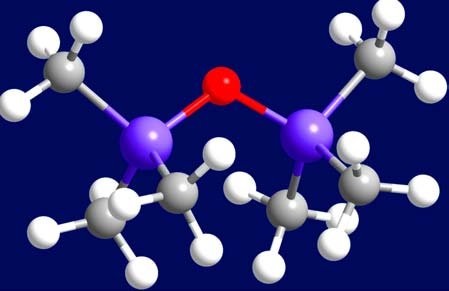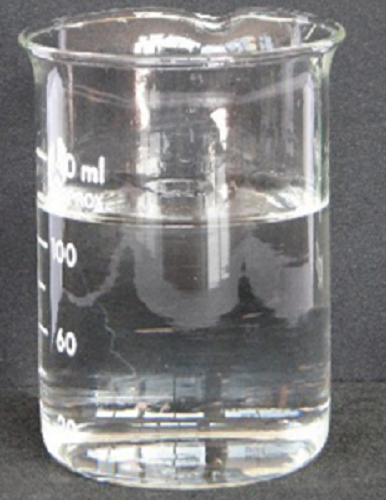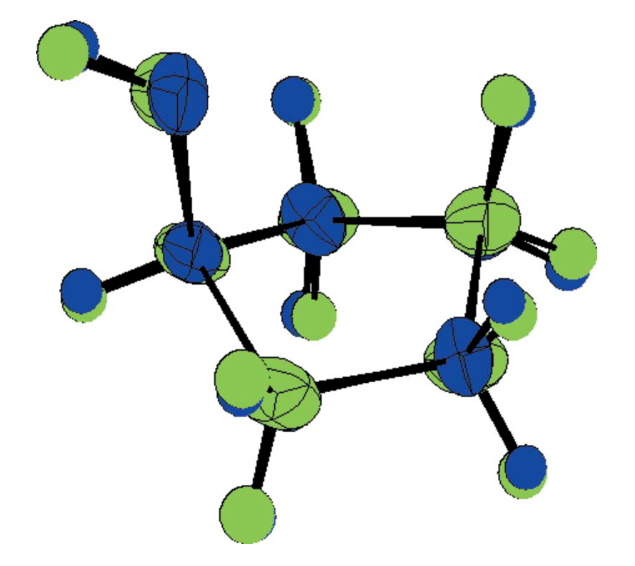What is the uses and toxicity of Hexamethyldisiloxane(HMDS)?
Hexamethyldisiloxane(HMDS/HMDSO), (CH3)3–Si–O–Si–(CH3)3, is a frequently used organosilicon monomer.

HMDS Uses
Hexamethyldisiloxane is a liquid precursor with a rather high vapor pressure and safe to handle. It might thus serve as a model plasma process in order to achieve a better understanding of plasma polymerization and to compare different plasma reactors. The deposition of HMDSO-fed discharges is one example where the plasma chemical reaction pathway and the film-forming species seem to be known. First of all, direct plasma activation of the monomer is required (in the absence of a reactive gas), i.e., electron impact dissociation. By electron impact in the plasma, mainly hydrogen (C–H bond energy of 3.5 eV) or methyl groups (Si–C bond energy of 4.6 eV) are abstracted. Note that electron impact dissociation requires activation energies exceeding the bond energies by a few eV due to molecule excitation. Therefore, many of these fragments (and reaction products) are found in the gas phase. However, species that are abundantly detected in the gas phase likely have a low reactivity at surfaces with respect to film formation.1
HMDS Synthesis
Hexamethyldisiloxane(HMDS) can be synthesized by addition of trimethylsilyl chloride to purified water:
2 Me3SiCl + H2O → 2 HCl + O[Si(CH3)3]2
It also results from the hydrolysis of silylethers and other silyl-protected functional groups.
HMDS Toxicity
Hexamethyldisiloxane has a very low water solubility and is highly volatile. It is therefore difficult to perform biodegradability and toxicity tests. Experimental data on degradation in water are not available. Based on chemical structure, no aerobic biodegradation of HMDS in water is expected. The half-life of HMDS in marine water is thus expected to be more than 60 days and the persistence (P) criterion is fulfilled. HMDS has not been detected in any fresh or marine waters. Experimental data and QSAR calculations both give a bioconcentration factor below the EU TGD cut-off value of 2000. The TGD bioaccumulation (B) criterion is therefore not fulfilled. The lowest reported experimental data on chronic toxicity is the NOECdaphnia (21d) = 0,08 mg/l. Hence, the EU TGD toxicity (T) criterion is not fulfilled.
References:
[1] HEGEMANN D. Plasma Polymer Deposition and Coatings on Polymers[C]. 1900. DOI:10.1016/B978-0-08-096532-1.00426-X.You may like
Related articles And Qustion
See also
Lastest Price from Hexamethyldisiloxane manufacturers

US $1.00/KG2025-04-21
- CAS:
- 107-46-0
- Min. Order:
- 1KG
- Purity:
- 99%
- Supply Ability:
- 10 mt

US $0.00/Kg/Drum2025-04-21
- CAS:
- 107-46-0
- Min. Order:
- 25Kg/Drum
- Purity:
- 99%
- Supply Ability:
- 200 tons



